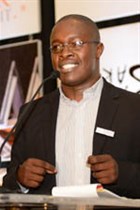
Top stories






More news


Marketing & Media
Ads are coming to AI. Does that really have to be such a bad thing?














The World Economic Forum's Networked Readiness Index (NRI) is an annual published measure of the propensity for countries to exploit the opportunities presented by information and communications technology. The NRI is an indicator of a country's competitiveness as a function of ICT, a key driver of development. Against this background, South Africa still has its work cut out in reforming its ICT implementation policies so as to give its citizens a chance to flourish in the global village.
The focus of most mathematics education technology interventions has been giving South African teachers and learners access to a computer and the internet. This is relevant but not enough. Education technology innovators have simply changed the educational tools from paper-based to device-based. Not enough emphasis has been placed on the interactive, customizable and scalable technologies that give the teacher and learner power to transcend rote learning into acquiring higher-order thinking skills, which are a result of unconstrained problem solving approach to mathematics education.
Mathematics education technology should facilitate for users to perform exploratory journeys into the unknown in their pursuit of mathematical knowledge. Fully interactive technology has thus far not been an emphasis from most of the players in the industry. Enabling an individual user to take full control of their mathematics learning is pivotal in attaining a universal mathematics safety net which will in turn bring mathematical happiness. My definition of mathematical happiness as written in my book Spreading Mathematical Happiness is:
Mathematical happiness is the state whereby you know that you can do maths and you are willing to pursue mathematical excellence at any cost with the full knowledge that it will not be easy but is necessary to attain your goals and is useful in the future.
The best way to fully customize and ensure scalability of best practice South African centric mathematics teaching and learning is to upscale the ICT skills of both learners and teachers. With the World Wide Web it is now very easy to crowd-source knowledge and methods through social media, learning management systems and other learning portals.
The most comprehensive ICT intervention for mathematics in South Africa has been the Siyavhula project which is to an extent interactive. The downside to this project is the lack of Latex programming teachers and learners thus cannot allow for further exploration and problem solving beyond the scope of material on their website. Most of the teachers and learners are limited to downloading the static PDF versions of the lessons. It is a worthwhile investment for educational funders to look into investment into coding for both learners and teachers.
The possibilities that are available to South Africa with an ICT skilled schooling environment are unimaginable. For instance, in Finland, a group of learners and teachers wrote an open-source mathematics textbook in three days at a hackathon. Imagine how many proudly South African open-source textbooks and software programs can be produced if we deliberately focus our attention on improving the ICT skills of educational technology users.
Other schools of thought will be of the opinion that this cannot be achieved in the short term. I would like to argue that with enough emphasis and impetus it can be done. Currently even the systems that are already in place are not being optimally used for the benefit of mathematics education. Platforms like Facebook, Twitter, Pinterest, Tumblr, Google+, YouTube, Instagram, and Khan Academy just to name a few are not being entirely exploited in the learning of mathematics.
By now, with all the computers, tablets and smart phones in the possession of teachers and learners there should be big networks within and without the classroom. It is a pity some of the schools in South Africa do not allow cell phones at school because the schools believe that they will be more of a hindrance than a benefit. I urge schools to revisit these policies and find solutions to best harness the power of these mobile technological devices into the learning.
I am of the belief that there is not enough synergy among mathematics education technology providers and funders in coming up with a universal strategy on how best to add value to learning. Currently there is evident competition to come up with the panacea to the perennial mathematical woes in the country. I urge educational innovators to collaborate and not compete, as has been proved over and over in history; cooperation is a higher ideal than competition. With the amount of money that has been invested so far into different initiatives, South Africa should have witnessed a seismic shift in the way mathematics is delivered to every learner in the country.
By now the country should have been focusing on the secondary issues of technology as opposed to providing access. MathsGenius Leadership Institute strives to collaborate with as many role players as possible in the mathematics education field as possible for optimal impact.
It is my hope that the Department of Basic Education will play an important part in getting all the players in one room and speaking the same language, a language that will lift South Africa from the mathematical doldrums.
